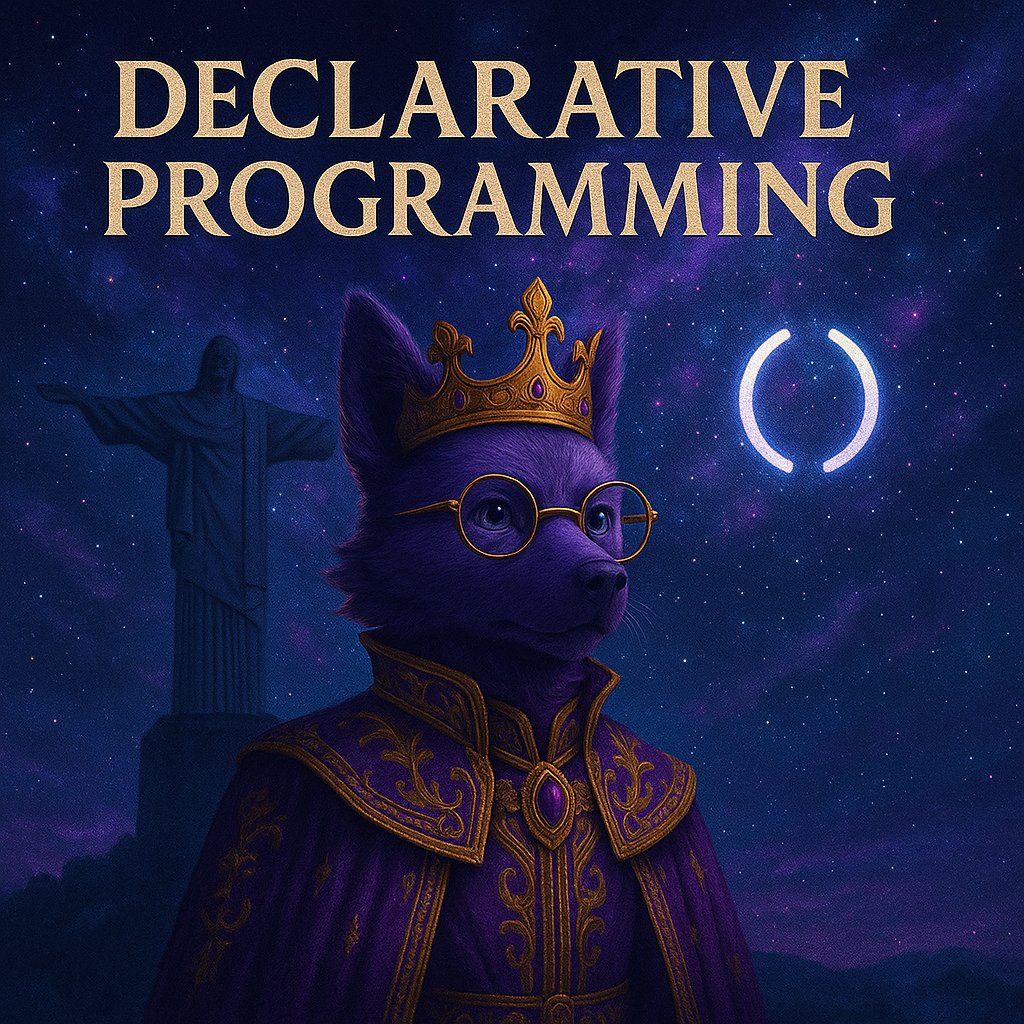[GUEST ACCESS MODE: Data is scrambled or limited to provide examples. Make requests using your API key to unlock full data. Check https://lunarcrush.ai/auth for authentication information.]  Jeycosmos⚛ [@cosmos_atom_](/creator/twitter/cosmos_atom_) on x 1833 followers Created: 2025-07-17 08:59:53 UTC Declarative > Imperative Programming: Designing with Intents, Not Instructions Most DeFi protocols are built imperatively. You code how to do something: @0xSoulProtocol - Step 1: approve - Step 2: deposit - Step 4: monitor collateral * Step 4: monitor collateral This works but it's rigid, repetitive, and exposes users to operational risk at every step. Soul introduces a declarative approach. You describe what you want and Soul figures out how to execute it. What Does Declarative Mean in DeFi? Instead of building scripts or workflows, users and developers express intents: $SO - "I want to borrow X ETH using my USDC collateral" - "I want to migrate this loan to a cheaper chain" - "I want to repay from a different wallet using a different token" The protocol interprets these requests and coordinates the necessary steps across chains and protocols. How Soul Enables Declarative Design Soul combines multiple architectural layers: $SO - Invoker lets users initiate actions from any chain - Router delivers instructions to the correct Controller - Controller executes supply, borrow, repay, and liquidation logic - STokens track position across yield sources - InterestStrategy connects the logic to optimal protocols Behind the scenes, Soul sequences the steps. To the user, it's just a single intent. Why This Matters X. UX Simplification - Users no longer have to manually coordinate cross-chain actions. X. Less Frontend Debt - Dev teams don’t need to script multi-step interactions. X. Cross-Chain By Default - Declarative actions abstract away the chain you're on the protocol handles routing. X. Fewer Errors - Imperative DeFi interactions expose users to transaction failures at each step. Declarative flows handle fallback, retries, and sequence integrity. Imperative DeFi is like cooking every step yourself. Declarative DeFi is like ordering a dish off a menu. You don’t care how the kitchen sequences the recipe you just want the outcome. Soul is the kitchen. The intent is your order. Where This Goes Next Declarative intent-based design enables: - Automated strategy composition (e.g., borrow, swap, repay) - Safer DeFi onboarding (users never touch execution logic) - Higher-order integrations (e.g., automated portfolio rebalancing across chains) As DeFi moves toward greater abstraction, intent-based frameworks will become the standard. Soul is already building the reference implementation. Imperative programming built DeFi v1. Declarative intent systems will define DeFi v2. Soul Protocol abstracts instructions into outcomes: - One user intent → Many protocol-level actions - Composable across chains - Executed securely, automatically This is what composability should feel like.  XXXXX engagements  [Post Link](https://x.com/cosmos_atom_/status/1945770420403315094)
[GUEST ACCESS MODE: Data is scrambled or limited to provide examples. Make requests using your API key to unlock full data. Check https://lunarcrush.ai/auth for authentication information.]
 Jeycosmos⚛ @cosmos_atom_ on x 1833 followers
Created: 2025-07-17 08:59:53 UTC
Jeycosmos⚛ @cosmos_atom_ on x 1833 followers
Created: 2025-07-17 08:59:53 UTC
Declarative > Imperative Programming: Designing with Intents, Not Instructions
Most DeFi protocols are built imperatively.
You code how to do something: @0xSoulProtocol
- Step 1: approve
- Step 2: deposit
- Step 4: monitor collateral
- Step 4: monitor collateral
This works but it's rigid, repetitive, and exposes users to operational risk at every step.
Soul introduces a declarative approach.
You describe what you want and Soul figures out how to execute it.
What Does Declarative Mean in DeFi?
Instead of building scripts or workflows, users and developers express intents: $SO
- "I want to borrow X ETH using my USDC collateral"
- "I want to migrate this loan to a cheaper chain"
- "I want to repay from a different wallet using a different token"
The protocol interprets these requests and coordinates the necessary steps across chains and protocols.
How Soul Enables Declarative Design
Soul combines multiple architectural layers: $SO
- Invoker lets users initiate actions from any chain
- Router delivers instructions to the correct Controller
- Controller executes supply, borrow, repay, and liquidation logic
- STokens track position across yield sources
- InterestStrategy connects the logic to optimal protocols
Behind the scenes, Soul sequences the steps. To the user, it's just a single intent.
Why This Matters
X. UX Simplification
- Users no longer have to manually coordinate cross-chain actions.
X. Less Frontend Debt
- Dev teams don’t need to script multi-step interactions.
X. Cross-Chain By Default
- Declarative actions abstract away the chain you're on the protocol handles routing.
X. Fewer Errors
- Imperative DeFi interactions expose users to transaction failures at each step. Declarative flows handle fallback, retries, and sequence integrity.
Imperative DeFi is like cooking every step yourself. Declarative DeFi is like ordering a dish off a menu.
You don’t care how the kitchen sequences the recipe you just want the outcome.
Soul is the kitchen. The intent is your order.
Where This Goes Next
Declarative intent-based design enables:
- Automated strategy composition (e.g., borrow, swap, repay)
- Safer DeFi onboarding (users never touch execution logic)
- Higher-order integrations (e.g., automated portfolio rebalancing across chains)
As DeFi moves toward greater abstraction, intent-based frameworks will become the standard. Soul is already building the reference implementation.
Imperative programming built DeFi v1. Declarative intent systems will define DeFi v2.
Soul Protocol abstracts instructions into outcomes:
- One user intent → Many protocol-level actions
- Composable across chains
- Executed securely, automatically
This is what composability should feel like.

XXXXX engagements